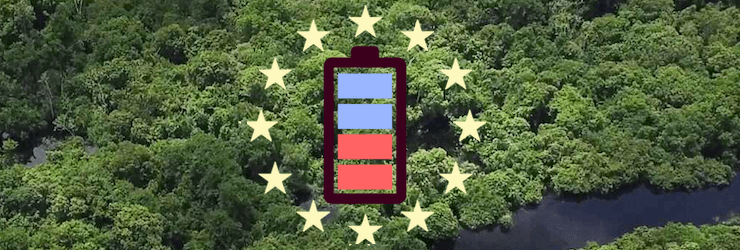Zahlreiche Unternehmen geraten zunehmend unter Druck, wenn es darum geht, die Auswirkungen ihrer Aktivitäten auf die Umwelt zu minimieren und den Verbrauch von Ressourcen zu optimieren, um den Cashflow des Unternehmens zu verbessern. Materialflusskostenrechnung (MFKR) ist ein Tool, das Unternehmen in genau diesem Punkt unterstützen kann. Sie ist ein Instrument, mit dem man Abfall, Material, Energieverluste und Emissionen über die gesamten Prozesse und Aktivitäten des Unternehmens hinweg nachverfolgen kann. Im Englischen heißt die Methode Material Flow Cost Accounting und wird mit MFCA abgekürzt, da diese Abkürzung auch im deutschen sehr viel gebräuchlicher ist, werden wir sie im Folgenden weiter verwenden.
MFCA fällt unter die Kategorie der in der Umweltkostenrechnung (Environmental Management Accounting, EMA) verwendeten Tools. EMA-Verfahren verbinden die ökologische und ökonomische Performance eines Unternehmens miteinander. Darüber hinaus bieten sie den Unternehmen einen finanziellen Anreiz, um ihre Aktivitäten noch bewusster unter dem Aspekt der Nachhaltigkeit zu betrachten. Diese Tools wurden in dem Wissen entwickelt, dass die umweltbedingten Kosten bei den konventionellen Bilanzierungstechniken häufig außen vor bleiben, was zu unzureichend oder falsch informierten Entscheidungen führt, die sowohl ökologische als auch ökonomische Folgen haben. EMA ermöglicht zu ermitteln, wie sowohl die Umweltleistung als auch das Gesamtergebnis eines Unternehmens verbessert werden kann.
MFCA ist eines der wichtigsten Tools in dieser Reihe von Bilanzierungsmethoden. Sie wurde in den späten 1990er-Jahren in Deutschland entwickelt, erlangte jedoch in den letzten Jahren in ihrer Umsetzung besondere Bekanntheit in Japan. Sie wird verwendet, um die Transparenz zu steigern, mit der ein Unternehmen die Flüsse, Transformationen, Bestände und Verluste physischer Inputs (dies können alle physischen Parameter einschließlich Materialien, Energie und Emissionen sein) über seine Prozesse hinweg verfolgen kann. Ganz so, wie es bereits in dem bekannten Spruch heißt: „Man kann nur managen, was man messen kann“, ist MFCA ein Instrument, mit dem man die Nutzung von Ressourcen messen und besser verstehen kann, um in der Folge die bestmöglichen Maßnahmen ergreifen zu können, um Abfallströme besser zu managen und Materialverluste zu reduzieren.
Die Verringerung des Ressourcenverbrauchs bietet offensichtliche ökologische Vorteile. Der wesentliche Aspekt von MFCA ist jedoch, dass der Anwender die Wirkung dieser Materialverluste in monetären Einheiten quantifizieren kann. Dies bietet den notwendigen Anreiz, damit ein Unternehmen aktiv wird, denn letztlich wirkt es sich auf dessen Gesamtergebnis aus. In vielen Fällen versagen herkömmliche Bilanzierungs- und Managementinstrumente, wenn es darum geht, die Höhe der mit Materialverlusten assoziierten Kosten zu berücksichtigen, oder sie unterschätzen diese. Mit MFCA klappt das besser: Sobald das Stoffstrommodell für den Materialeinsatz einmal entwickelt wurde, können die Kosten den über die gesamte Wertschöpfungskette hinweg entstehenden Verlusten zugeordnet werden – dies wiederum ermöglicht Unternehmen, die Bereiche mit dem größten Einsparungspotenzial noch effektiver zu identifizieren und anzugehen.
Wie funktioniert diese Bilanzierungsmethode nun in der Praxis? In der einfachsten Form funktioniert MFCA nach dem Prinzip der Masse/Materialbilanz. Stellen wir uns erst einmal die einfachste Form vor – als einen einzelnen Prozess in einer T-Shirt-Produktionslinie. Eine bestimmte Menge Textilmaterial wird unserer Verarbeitungseinheit (fachlich „Mengenstelle“ genannt) zugeführt und wir erhalten eine bestimmte Menge an Produktoutput in Form von T-Shirts. Wenn wir davon ausgehen, dass wir 100 Kilogramm (kg) Baumwolle in unsere Verarbeitungseinheit hineingeben und anschließend T-Shirts mit einem Gewicht von 60 kg erhalten, dann wissen wir, dass wir während des Herstellungsverfahrens 40 kg Material verloren haben. Das ist das, was wir unseren „Materialverlust“ nennen. Mit anderen Worten, mit MFCA erstellen wir für jeden Prozess eine Massebilanz zwischen unseren Inputs und unseren Produkten (Outputs) und wenn diese nicht im Gleichgewicht ist, wissen wir, dass im Prozess Material „verloren“ gegangen ist.




.png)

